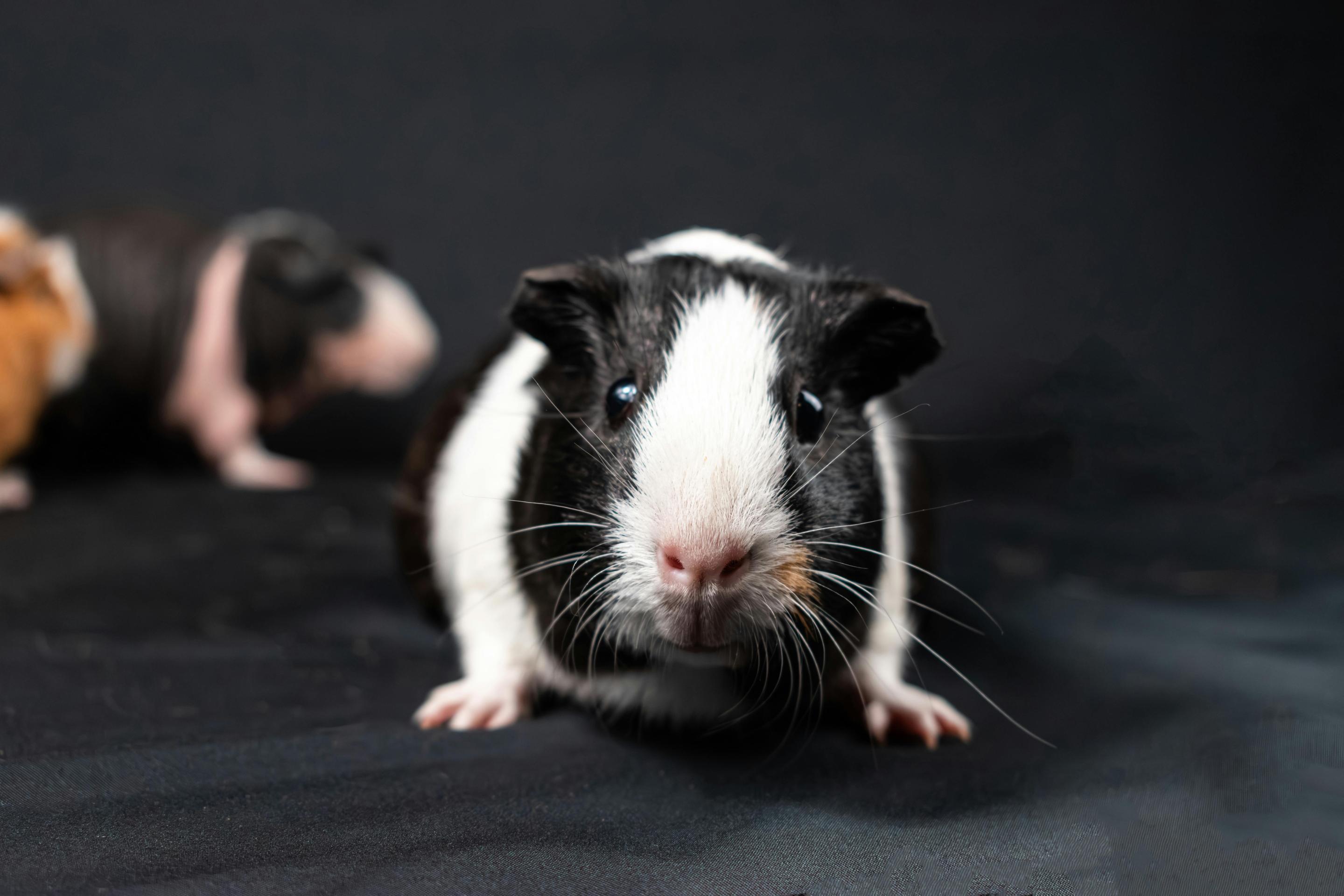Guinea pigs are adorable and affectionate pets, but sometimes they develop behavioral habits that can be concerning for their owners. One such behavior is chewing on their own hair, a condition known as "barbering." This can lead to bald patches, skin irritation, and stress for the animal. Understanding the causes of this behavior and how to address it is key to keeping your guinea pig healthy and happy. In this blog, we’ll explore the reasons behind hair chewing and offer solutions for managing the issue.
What is Barbering in Guinea Pigs?
Barbering is the term used to describe the behavior in which guinea pigs chew or bite the fur of other guinea pigs (or their own), often resulting in short, uneven patches of missing hair. While it may seem like a harmless activity, it can have negative effects on your guinea pig’s health and well-being.
Common Causes of Hair Chewing
There are several reasons why a guinea pig may engage in hair chewing. Let’s take a closer look at the most common causes:
1. Boredom and Lack of Stimulation
Guinea pigs are active and curious creatures that require regular mental and physical stimulation. If they are not provided with enough toys, space, or social interaction, they may resort to repetitive behaviors like hair chewing. This is particularly true if they are housed alone without another guinea pig for companionship.
Solution:
Make sure your guinea pig has plenty of toys, tunnels, and safe objects to chew on. You can also provide enrichment activities like foraging for food or creating obstacle courses to keep them entertained. If possible, consider adopting another guinea pig as a companion to help reduce loneliness.
2. Stress and Anxiety
Guinea pigs are sensitive animals and can experience stress from various environmental factors, such as loud noises, sudden changes in routine, or overcrowded living spaces. Anxiety and stress can manifest in behaviors like hair chewing, as a coping mechanism.
Solution:
Ensure your guinea pig's living environment is quiet, calm, and consistent. Provide a safe space where they can retreat if they feel threatened or stressed. Also, try to avoid sudden changes in their routine, such as moving their cage or introducing new pets without a gradual introduction.
3. Nutritional Deficiencies
A lack of essential nutrients in a guinea pig’s diet can lead to poor coat health, which may prompt them to chew on their fur. Common deficiencies include a lack of vitamin C, fiber, or protein, which are all crucial for maintaining a healthy coat.
Solution:
Ensure your guinea pig is eating a balanced diet that includes plenty of fresh hay, vegetables, and fruits. Guinea pigs require a daily source of vitamin C, so provide them with foods like bell peppers, kale, or specially formulated vitamin C supplements. Regularly check that they have access to fresh water.
4. Skin Irritations or Health Issues
In some cases, hair chewing can be a sign of an underlying health issue, such as fungal infections, mites, or dry skin. If your guinea pig is experiencing itching or discomfort, they may chew or scratch at their fur.
Solution:
If you suspect a health issue, it’s important to consult with a veterinarian to rule out infections or parasites. A vet can conduct a thorough examination and recommend appropriate treatment, such as antifungal medications or mite treatments.
5. Social Hierarchy or Dominance
In multi-guinea pig households, hair chewing may occur as a result of dominance behavior. Guinea pigs establish a social hierarchy, and the dominant guinea pig may chew the hair of other guinea pigs to assert its position. This is more common in same-sex groups or when there are more than two guinea pigs in a cage.
Solution:
Ensure that your guinea pigs have enough space to establish their territory without feeling threatened. You can also try to introduce new guinea pigs slowly and carefully, giving them time to adjust to each other’s presence. If you notice aggressive behaviors, consider separating them into different living spaces to reduce stress.
How to Stop Hair Chewing in Guinea Pigs
If your guinea pig is chewing on their own or another’s hair, it’s important to address the behavior early to prevent further harm. Here are some additional steps you can take:
-
Provide More Space: Ensure your guinea pig has ample room to move around. A larger cage or pen with hiding spots, tunnels, and platforms will help reduce stress and prevent boredom.
-
Regular Grooming: Regularly groom your guinea pig to prevent mats and tangles in their fur. Brushing can also help you check for signs of skin issues or parasites.
-
Enrichment and Interaction: Spend quality time with your guinea pig every day. Guinea pigs are social animals and benefit from interaction with their owners. You can play with them, offer treats, or let them explore a safe area outside their cage.
-
Proper Veterinary Care: If the behavior persists or seems to be related to a health problem, schedule a visit to the vet. Hair chewing caused by medical conditions will require proper treatment.
While hair chewing in guinea pigs can be concerning, it’s often manageable once you understand the root causes. By ensuring that your guinea pig has a stimulating environment, a balanced diet, and a calm living space, you can help reduce the likelihood of barbering. If you suspect health problems, always consult with a veterinarian to get to the bottom of the issue.
Guinea pigs are wonderful pets that deserve care and attention, and with the right strategies in place, they can live long, healthy, and happy lives without engaging in hair chewing.
If you have questions and you'd like to reach out to us, you can call us directly at (602) 833-7511, or you can email us at [email protected]. Don't forget to follow us on social media Facebook, Instagram.

